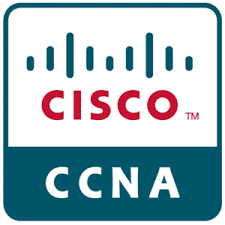New – Gain the foundational knowledge and skills necessary to install, configure, and operate a small to medium-sized Cisco network.

CCNA – Implementing and Administering Cisco Solutions v1.0 teaches professionals how to install, operate, configure, and verify a basic IPv4 and IPv6 network. You’ll learn how to configure network components, such as a switch, router, and Wireless LAN Controller. You’ll also gain skills needed to manage network devices, and identify basic security threats. This course is recommended for those pursuing their Cisco Certified Network Associate (CCNA) certification, which is the starting point for all Cisco network infrastructure certifications. It’s ideal for entry-level networking engineers, administrators and technicians who support, operate and install Cisco networks.
Global Information Technology’s instructor-led new CCNA course is designed for candidates that want to attain the new CCNA 200-301 certification. Become well-rounded and take your skills to the next level with a course that goes beyond CCNA for your current career as well. CCNA 200-301 is the new industry standard networking certification for network administrators, engineers and data center operations. This course will also be a prerequisite for higher level CCNP, CCIE and security certifications.
What’s New CCNA exam 200-301 exam?
CCNA 200-301 replaces all previous CCNA exams with a single exam. The new exam is 120-minutes with 100+ questions and exam fee is $300 USD. There are significant changes to the new CCNA curriculum. The new exam has only single-area OSPFv2 as the dynamic routing protocol and no troubleshooting topics. There are topics such as route selection and routing table components however that could include other routing protocols such as EIGRP.
What are CCNA 200-301 Knowledge Domains?
20% Network Fundamentals
20% Network Access
25% IP Connectivity
10% IP Services
15% Security Fundamentals
10% Automation and Programmability
What are the changes in new CCNA?
The current Cisco Certified Entry Networking Technician (CCENT) will be retired. At the Associate level will be the new CCNA, which will validate a broad range of foundational knowledge and skills. It will have just one exam covering networking and security fundamentals, as well as automation and programmability. Previously, CCNA candidates typically had to take multiple exams to earn one of 10 different CCNA certifications. The new CCNA exam (#200-301) is scheduled to go live Feb. 24, 2020. The new CCNA will replace these current certifications:
• CCNA Cloud
• CCNA Industrial
• CCNA Collaboration
• CCNA Routing and Switching
• CCNA Cyber Ops
• CCNA Security
• CCNA Data Center
• CCNA Service Provider
• CCDA Design
• CCNA Wireless.
What are the changes in CCNP?
Most CCNP certifications will also be retiring. Right now, networking professionals start a specialization track at the CCNA level. For example, CCNA Security leads to CCNP Security. However, after February 24, 2020, the one CCNA exam (200-301 CCNA) will cover networking basics and then you specialize at the CCNP level. You will be required to pass 2 exams: a core exam and one concentration exam. Here’s the complete list of the new CCNPs:
• CCNP Enterprise
• CCNP Collaboration
• CCNP Security
• CCNP Data Center
• CCNP Service Provider
• Cisco Certified DevNet Professional Passing any one of these exams will earn you the Cisco Certified Specialist title in that concentration. Passing the second exam will earn you the CCNP in that focus area.
Real testimonials from our Students!
8/10/2017. My experience Global Information Technology was something I wouldn’t trade for the world. When I went there looking for A+ Training, I had been jobless for eight months. I was desperate to find something, anything that would change my life. Global Information Technology did just that. After completing the training program there, I actually [...] Read more
Wesley Cicotte
I wish to thank GIobal Information Technology for helping me restart my career after taking a break of almost 8-9 years. During my career break, I had not kept my skills updated and before getting back into my career search, I decided to get re-trained. While researching the training institutions, in late 2009, I came [...] Read more
Nalini Sanku
My name is Tiffanie Bradley; I was a Mainframe Programmer Analyst by profession and was laid off from Compuware Corporation in 2004. I have been in the Information Technology (IT) field for over 15 years and have experienced a successful career. Upon being laid off and seeking further employment, I recognized that my skills were [...] Read more
Tiffanie Bradley
My name is Ruth Byrd. I would like to take this opportunity to convey the meaningful connections between my professional past and the skills that I acquired from the Global IT training experience. Too often we progress through the ‘ropes of life’ and do not invest the time to express our gratitude and authentic value [...] Read more
Ruth Byrd
I wish to express my thanks and gratitude for your expert teaching and support that have helped me transition into a career in information technology. When I began taking classes in August of 2009, I had been unemployed for over a year, and job prospects in the insurance industry were slim. Your staff took the [...] Read more
Marcus Thompson